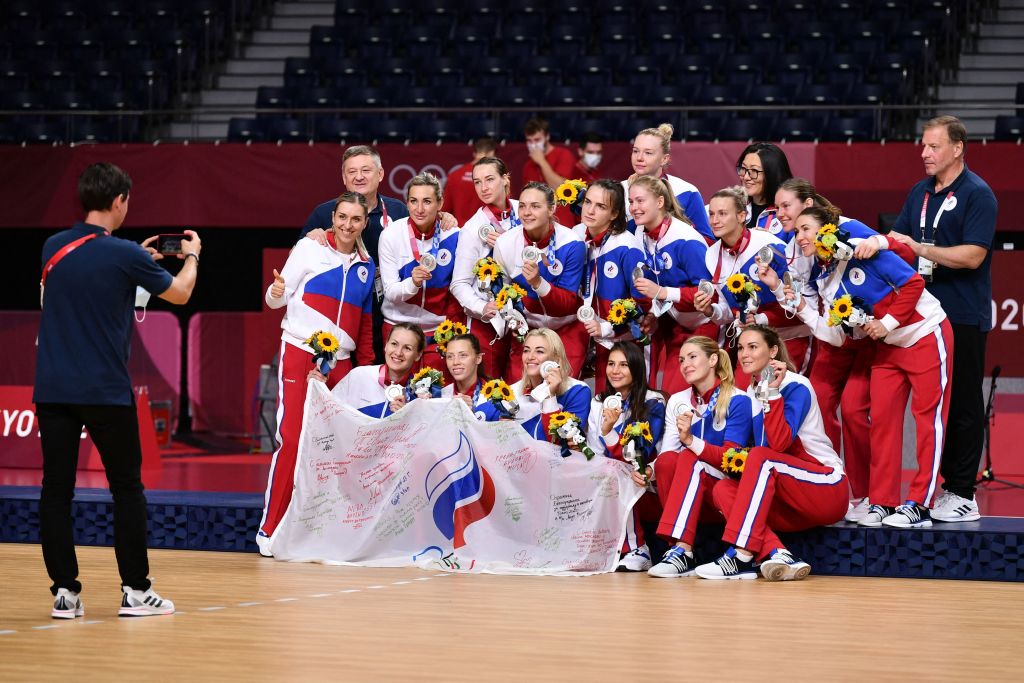The Tokyo Olympics are over and fifth place in the medals table went to the ‘ROC’, the Russian Olympic Committee. Rather than being punished for its state-run doping program, Russia has turned it into a perverse triumph, illustrating the weakness of sanctions as a way of trying to shape international behavior.
Of course, Moscow denied systematic cheating, but after the World Anti-Doping Agency imposed a four-year ban in 2019, reduced to two years by the Court of Arbitration for Sport in 2020, they were forced to accept that if Russian athletes were going to compete, they could not do so under their own flag.
They hardly went deep undercover, though. At the 2018 Pyeongchang winter Olympics, they wore plain gray uniforms and took the podium to the Olympic anthem. By contrast, while the 335 Russians in Tokyo couldn’t compete under the Russian flag, their symbol was the Olympic logo in its white, blue and red colors, and their white uniforms were emblazoned in blue and red. Instead of the Russian national anthem, they celebrated victories to Piano Concerto No. 1 by Tchaikovsky.
And that anthem was often heard: Russia came fifth in the medals table and third in the total number of medals won. While the athletes were formally part of the ‘ROC’ team, in practice everyone called them the Russians.
This hardly counted as a particular blow to Moscow. Indeed, if anything it generated a certain belligerent defiance. The foreign ministry issued a video in which sharp-tongued spokesperson Maria Zakharova was shown boxing a mannequin marked ‘press’ before answering staged questions about the Russian presence in Tokyo in which she said that ‘the status does not matter. The most important thing is the pride our sportsmen have, and the world knows this.’ Her video ended with the moderately witty hashtag #WeWillROCYou that became a leitmotif of the Russian response.
Nor was this just the government. The famous DJ Smash mixed Queen’s ‘We Will Rock You’ with Piano Concerto No. 1, and this became something of an unofficial theme for videos posted on TikTok showing Russian successes.
Of course, the reason why Moscow is still annoyed about the ROC designation is because they do believe they have been singled out for special and hostile treatment. The official line is that the doping program did not happen. The unofficial one is that everyone dopes, but only the Russians get punished. There may be some truth in that. Although institutionalized doping operations like Russia’s may be rare, the Economist pulled together a range of surveys to suggest that ‘between 10 and 40 percent of athletes in Tokyo might be cheating.’ Meanwhile, Russian athletes who may well have been entirely clean for their careers are mocked when they do badly, traduced when they do well.
After he lost the gold to Evgeny Rylov in the 200m backstroke, for example, American swimmer Ryan Murphy claimed he had been ‘swimming in a race that’s probably not clean.’ The American rower Megan Kalmoe was even less subtle, saying the Russians were ‘a crew who shouldn’t even be here’, adding that seeing then win silver was a ‘nasty feeling.’
This is the modern world of sanctions in a nutshell. Too often, measures are enough to annoy, not enough to influence.
When dealing with a country as powerful as Russia, it is hard to conceive of anything which is truly going to be substantive enough to force the Kremlin to change tack. Economic sanctions have not forced Moscow to surrender Crimea or stop its undeclared aggression in the Donbas. Personal sanctions against alleged ‘Putin cronies’ certainly affect individuals, but do not make the Kremlin think twice. (If anything, Putin has been trying to get his allies to ‘de-offshorize’ and get their money back to Russia — where it is within his reach.)
This doesn’t mean doing nothing. It just means acknowledging that when the West or the international community wants to punish rules-breakers, it needs to think about what may actually have a meaningful effect — rather than just make people feel righteous — and what the potential backlash may be. Time and again, though, we don’t.
This article was originally published on The Spectator’s UK website.

























